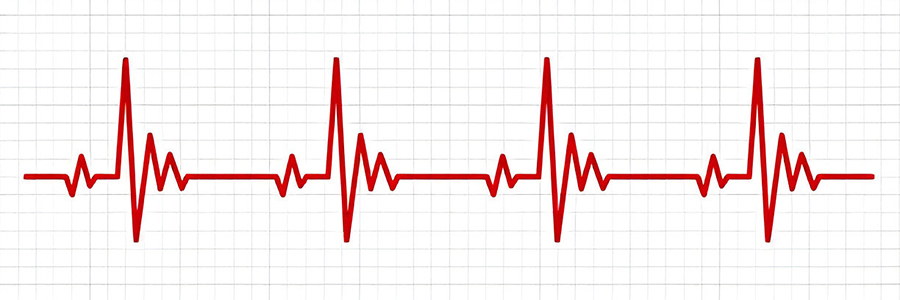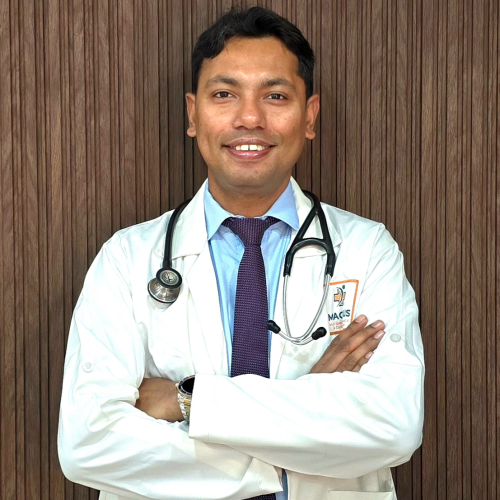
Cardiology
Cardiology focuses on diagnosing and treating heart conditions, such as congenital heart abnormalities, coronary artery disease, heart failure, and valve disorders. Our Cardiology Department provides both invasive and non-invasive diagnostic and therapeutic services as part of a comprehensive approach to cardiac care. Patients with cardiovascular problems receive outstanding, comprehensive care from our team, assuring their cardiovascular health. With an emphasis on quality, we work hard to provide each patient with the finest results possible, supported by our knowledge and commitment to heart health improvement.
- Coronary Angiography
- Coronary Angioplasty
- Primary Angioplasty
- Heart Failure Clinic including CRT Implantation
- 24x7 Emergency Coverage
- Pacemaker Clinic
- Permanent Pacemaker AICD Implantation
- Structural Heart Disease Intervention
Cardiology Department Doctors

Dr Debojyoti Sarkar
MBBS (HONS), MD (Medicine), DM ( Cardiology), DNB, FSCAI, FESC, FACC

Frequently Asked Questions on Cardiology
Open heart surgery is considered to be more painful than minimally invasive heart surgery. The open heart surgery includes an incision in the chest that comes with a recovery period of around 5 to 7 weeks.
Cardiology is a branch of medicine that focuses on diagnosing and treating heart and blood vessel disorders. Cardiologists treat a range of conditions, including coronary artery disease, heart failure, arrhythmias, high blood pressure, valvular heart diseases, and congenital heart defects.
Common symptoms of heart disease include chest pain or discomfort, shortness of breath, fatigue, palpitations, lightheadedness, and swelling in the legs, ankles, or feet. If you experience any of these symptoms, especially chest pain, seek medical attention immediately.
Preventing heart disease involves maintaining a healthy lifestyle. Key measures include eating a balanced diet low in saturated fats and cholesterol, exercising regularly, managing stress, avoiding tobacco, maintaining a healthy weight, and monitoring blood pressure and cholesterol levels. Regular check-ups with your healthcare provider can also help assess your heart health.
Cardiologists use various tests to diagnose heart conditions, including electrocardiograms (ECGs), echocardiograms, stress tests, cardiac catheterization, and blood tests. These tests help assess the heart's function and structure, identify blockages, and determine the best treatment options.


